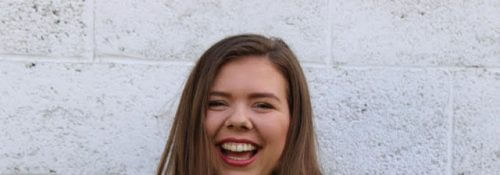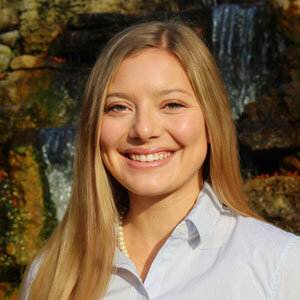
Collegium Through Religious Differences
Written by Corinne Prost
“Hillsdale’s assertion that it’s a nonsectarian Christian college means that it is a spiritually elevated place, full of people who are experts in something in which I am a novice.”
Although this statement initially sounds like something a young Christian might say, it comes from a student practicing the Jewish faith.
Most view Hillsdale’s students and faculty as an exclusively Christian body. Despite what its founding principles and governing values might indicate, the College is more diverse than it initially appears. In addition to the expected Catholic and Protestant mix, some students and faculty profess to be atheist, agnostic, Jewish, Buddhist, and Muslim—and even this list is limited.
In my search, I connected with students who described themselves as agnostic, Protestant, and Jewish. I asked each about her faith, how it relates to her experience at Hillsdale, and how she reconciles her differences in faith with the rest of campus. The most intriguing thing that I noticed was a certain consistency in the answers: Hillsdale strengthens these students’ sense of community despite the challenge in handling religious differences.
Katie Bell, ’20, identifies as agnostic and was raised in a religious environment only until age twelve.
“Faith doesn’t mean much to me, as I struggle to believe there is anything out there to have faith in except for me and those close to me,” she said. Before she came here, “the truth to me was science and purely science—the proven facts. I haven’t differed much at all from this view. College just has me questioning more.”
How does the College’s pursuit of truth in an area she disagrees with affect her? “Hillsdale has made me think much harder about what it is people believe and what makes people do so. I rarely meet people here who have the same faith as me, so it really hasn’t impacted me much at all.”
Katie recognizes that her friends do not share her point of view, but she fully respects that. The spirit of community, despite differences, is more important to her than fundamental differences in beliefs.
Andie Chandler, ’19, a Protestant Christian, would agree. “During my time at Hillsdale, I have grown in my faith in ways that I honestly could have never imagined. For me, Hillsdale has definitely promoted my faith through both academic challenges, leadership trials, and relationships. In particular, I believe that God has used Hillsdale as a way to teach me many lessons about myself, those around me, and my relationship with Him.”
A natural assumption is that religious students on campus segregate themselves from those who don’t share their faith, but Andie explained that students generally believe interaction is a crucial part of maintaining campus community.
“Campus ministries, both Protestant and Catholic, cannot just be a place for the fellowship of devout Christians, but must be open to those who have walked away from the faith or have never possessed faith,” Andie said. “Living in community with others who may have different beliefs or lifestyles from me has taught me volumes about the love that God has for each and every individual and how to love others in a similar way.”
The liberal-arts approach shapes the perspectives of these students by cultivating the knowledge that there are greater lessons available through exposure to different belief systems.
Sara Garfinkle, ’19, said her religious practices differ considerably from many of her peers on campus, but the message behind her responses is similar.
“The non-Jewish community here has brought me so much closer to faith. It has made me immeasurably more grateful for my heritage, and has taught me that kehila kedosha [holy community] can exist wherever you make it.”
For Sara, the College’s declaration of faith is a positive challenge to everyone’s religious beliefs and attitudes toward others.
“This is exactly the kind of place where I want to learn and grow up as best as I can,” she said.
Evidently, these differences in religion provide the opportunity to enhance and strengthen our pursuit of what is Good, True, and Beautiful. It truly is the spirit of “collegium”—that traditional sense of partnership that promotes our understanding of college.
 Corinne Prost, ’19, is an American studies major and rhetoric minor. She dreams to one day own a library so extensive that it rivals the one from Beauty and the Beast.
Corinne Prost, ’19, is an American studies major and rhetoric minor. She dreams to one day own a library so extensive that it rivals the one from Beauty and the Beast.
Published in November 2018